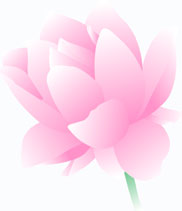PADMA PURANA |
|
 |
Saptarshis censure Self-indulgence and accept Daanaas for essentials only Pulastya described to Bhishma about the pulls and pressures that normally overtake human actions and reactions and clarified that even Rishis, let alone virtuous Brahmanas some times become victims of greed and Self-indulgence and this repulsive tendency needed to be condemned at all costs. |
In the past, several distinguished Rishis including Atri, Vasishtha, Pulastya, Pulaha, Kratu, Angira, Goutama, Sumati, Sumukha, Viswamitra, Sthulashira, Samvarta, Pratirdana, Raibhya, Brihaspati, Cyavana, Kashyapa, Bhrigu,Durvasa, Jamadagni, Markandeya, Gaalava, Ushaana, Bharadwaja, Yavakrita, Kanva, Sthulaaksha, Makaraaksha, Medhatithi, Narada, Parvata, Swaandhi, Trunaambu, Shabala, Dhoumya, Shatananda, Akrutavrana, Parashurama, Ashtaka and Krishna -dwaipayana arrived at Pushkara Tirtha along with families including sons and disciples and with decisive self-control and regulations practised Tapasya. Saptarshis among these Rishis were also visiting the Holy Tirtha very often and practised Vedic ways of life as though to subtly guide and encourage other Rishis. Once a terrible famine broke up and the world as a whole and the various Kings were concerned that the Rishis were affected badly and as such started pampering the Rishis overtly with Dhana, Dhanya, Ghrita-Dugdha, and various edibles, cows, gold, Ratnas etc. With this generosity, the Rishis were annoyed since frugal existence was the hall-mark of Brahmanas, Sanyasis, and Rishis. They reacted sharply and asserted that ten Kasayis or meat-cutters were better than one Chakri / Kumhara or oil dealer; ten chakris were better than a wine-dealer; ten wine dealers were better than a Veshya or a Prostitute; and ten Prostitutes were better than a King! Thus when Brahmanas accepting the charity of a King out of greed would surely suffer Tamishra-like hells! Sage Atri affirmed that material well-being in this World would provide semblance of temporary happiness but those who desired permanent bliss after life should never mistake the shadows to reality. Sage Vasishtha stated in no uncertain terms that storing Tapasya would anytime be better than ‘Dhana Sanjnaya’ or storing money, for no human being could ever assert happiness from possessions since the relative term of ‘Sangraha’ was as limitless as a deep pit! Sage Kashyap opined that ‘Dhana Sampatti’ or possession of Wealth would lead to ‘Moha’ or infatuation which was a distinct route to ‘Naraka’and that the two words of possession and abstinence are two poles of great distance where there could be no middle paths, since that kind of equilibrium would be always a myth.Equally false was a feeling that ‘Dhana’ helped furtherance of ‘Dharma’. Bharadwaj Muni stated that even when a human being lost teeth and hairs were fallen, the desire of possession would last till death and that unless the creeper of ‘Trishna’ (greed) was uprooted periodically, it germinated again and again.Similar views were also expressed by other Saptarshis who visited Pushkara Tirtha. But the fact was that the famine which broke at the Pushkara Tirtha was a reality and sufferings that entailed the famine were practical. Hunger was such a leveller that its impact was far-reaching affecting the parents, wife, children and relatives; there could be consideration for the Guests, Gurus, Pitras and not even to Devatas! Thus there could never be a substitute for ‘Anna’ or Food. Universal existence depended on Anna, be it for Pitras, Devatas, Daithyas, Yakshas, Rakshasas, Kinnaras, human beings or Piscachas. Anna was the root cause for Tapa, Satya, Japa, Homa, Dhyana, Yoga, and Salvation. Anna was the life, physical power, and mental acumen. Thus ‘Anna Daan’ would indeed be the greatest task of nobility. Indeed this kind of life giving Daan has utmost importance but has to be tempered with ‘Indriya Samyama’ (Physical Control) and ‘Manonigraha’ (Mental Restraint); if acceptance of Daana without ‘Dama’ (Self-control) and ‘Niyama’ (Regulation). Thus Daana was an integral component of Dama and Yama and thus only such kind of Daana of essentials like ‘Anna’ or bare minimum needs which are worthy of acceptance without transgressing the limits of ‘Dama’ and ‘Niyama’ but certainly not the material possessions that the Saptarshis detested and disapproved otherwise without passing the tests of morality bordering on self-indulgence or intemperance! In fact acceptance of Daana with strings attached, for the sheer ‘show’ or publicity to the donor and the receiver, for the purpose of possession, and without regard to Restraints and Regulative Mechanisms should be considered as a sin that would need to be detested and avoided at any cost! |
|
| Padma Purana Home | Next: Markandeya attains Deerghaayu and enables Shri Ramas vision ofAviyoga |
Back to the News Page